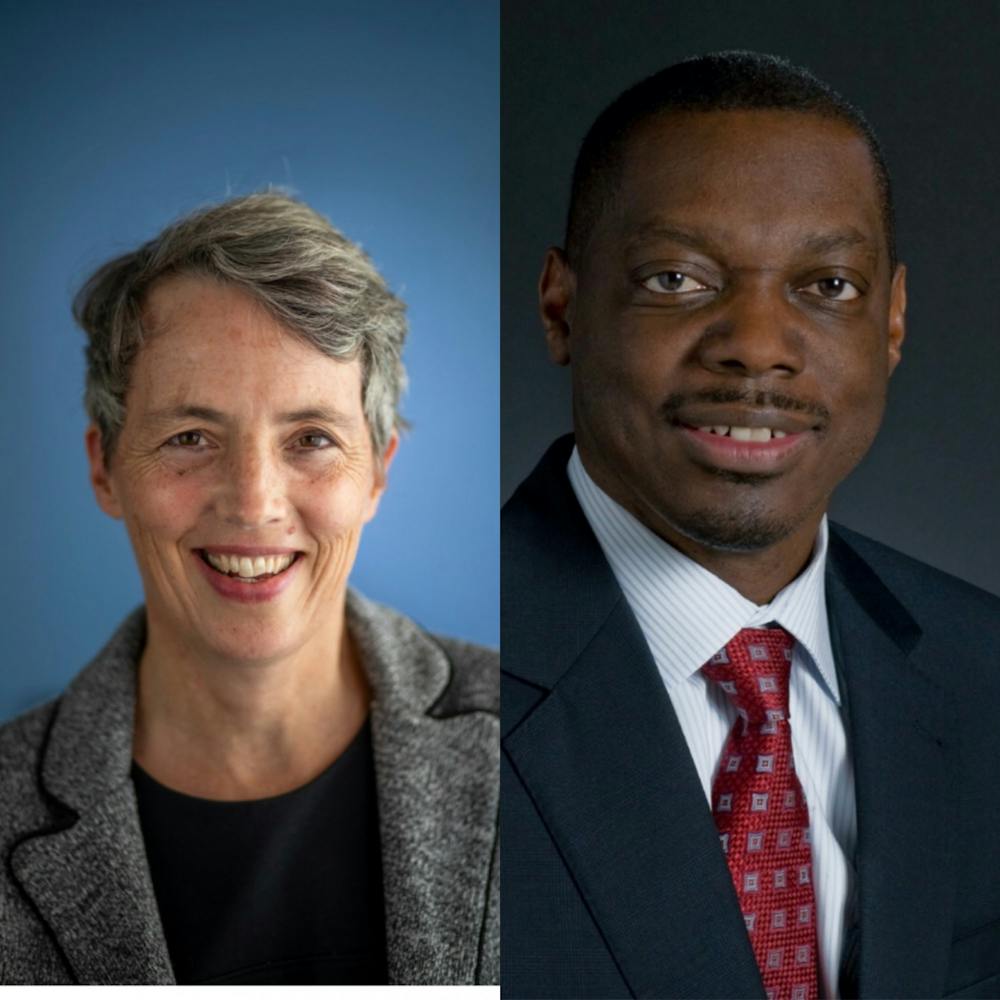The National Academy of Medicine (NAM) announced its election of 100 new members on Oct. 18, 10 of whom are Hopkins faculty members. Election to the NAM is considered one of the most significant awards in health and medicine, as it honors individuals for their professional achievements and commitment to service. This class is the NAM’s most diverse to date.
The NAM is one of three academies making up the National Academies of Sciences, Engineering and Medicine chartered in 1863 by then-President Abraham Lincoln. The NAM is an independent organization with members across the world who have backgrounds in health, medicine and the sciences who have contributed to scientific evidence and advised on policies.
The 10 new NAM members from Hopkins are Dr. Pablo Celnik, Dr. Ted Dawson, Dr. Sherita Hill Golden, Dr. Drew Pardoll, Taekjip “TJ” Ha, Jessica Gill, Cynthia Wolberger, Darrell Gaskin, Tener Goodwin Veenema and Sarah Szanton.
Gaskin is a health economist with particular interests in the role of place in driving racial and ethnic health disparities and how healthcare can be made more accessible to vulnerable populations. He is the William C. and Nancy F. Richardson professor in health policy and director of the Hopkins Center for Health Disparities Solutions at the School of Public Health.
During NAM elections, current NAM members familiar with the work of new NAM candidates must sponsor confidential nominations for their consideration.
In an interview with The News-Letter, Gaskin explained that he was grateful to be elected.
“It’s always really special to be acknowledged for your contributions to the field by the giants in the profession,” he said. “[The NAM members] are people who have expertise and have really established themselves in their own right as being major contributors to our knowledge with regard to both medicine and public health.”
Gaskin did not anticipate being elected to the NAM when he was studying to become a health economist.
“One doesn’t craft a career in order to be elected to the [NAM],” he said. “You have your career, and then people look at it and say, ‘Wow, the body of work you’ve created is really worthy of this honor.’”
With his new distinction, Gaskin hopes to continue using his background to further research and understanding on how the social determinants of health and an individual’s regulatory environment impact health outcomes.
Another recipient of the NAM award is Veenema, a public health researcher with interests in public health emergency management and disaster nursing. She is a senior associate in the Department of International Health at the School of Public Health and a contributing scholar at the Hopkins Center for Health Security.
Veenema hopes to continue applying science to advance public health emergency preparedness and response given the current COVID-19 pandemic and her background in emergency management.
“I look forward to continuing my work with the Center for Health Security to advance readiness for future pandemics and other types of disasters and public health emergencies,” she said in an interview with The News-Letter.
Another awardee is Szanton, the dean of the School of Nursing and the Patricia M. Davidson professor for health equity and social justice.
With this distinction, Szanton looks forward to leading position papers and moving policy conversations forward in her field.
“I was a lobbyist before I was a nurse, and I was a nurse before I was a researcher, so it feels like I’ve come full circle in terms of having built up the skills and the abilities to be able to affect policy,” she said in an interview with The News-Letter.
Szanton is known for developing the Community Aging in Place — Advancing Better Living for Elders (CAPABLE) program. This model delivers regular visits from a nurse, occupational therapist and home-repair person to low-income seniors for several months. Studies have shown that CAPABLE improves health outcomes at lower costs.
Szanton finds that the most meaningful aspect of her career lies in impacting the lives of older adults whom she will never meet, such as 72-year-old Nancy Thompson. Thompson was featured in Time Magazine and reported significant improvements in her daily life thanks to CAPABLE. Thompson used to fall regularly, incidents which would require trips to the hospital. Since starting the CAPABLE program, Thompson has received specialized goals, training and equipment that have helped her avoid hospitalization entirely.
Szanton explained that this award will allow her to further her impact on the world.
“I’m excited in terms of being able to have a platform of colleagues and recognition to be able to do more of that work,” she said. “To me, the reason to do research is to understand and then change the world and how unfair it is.”





